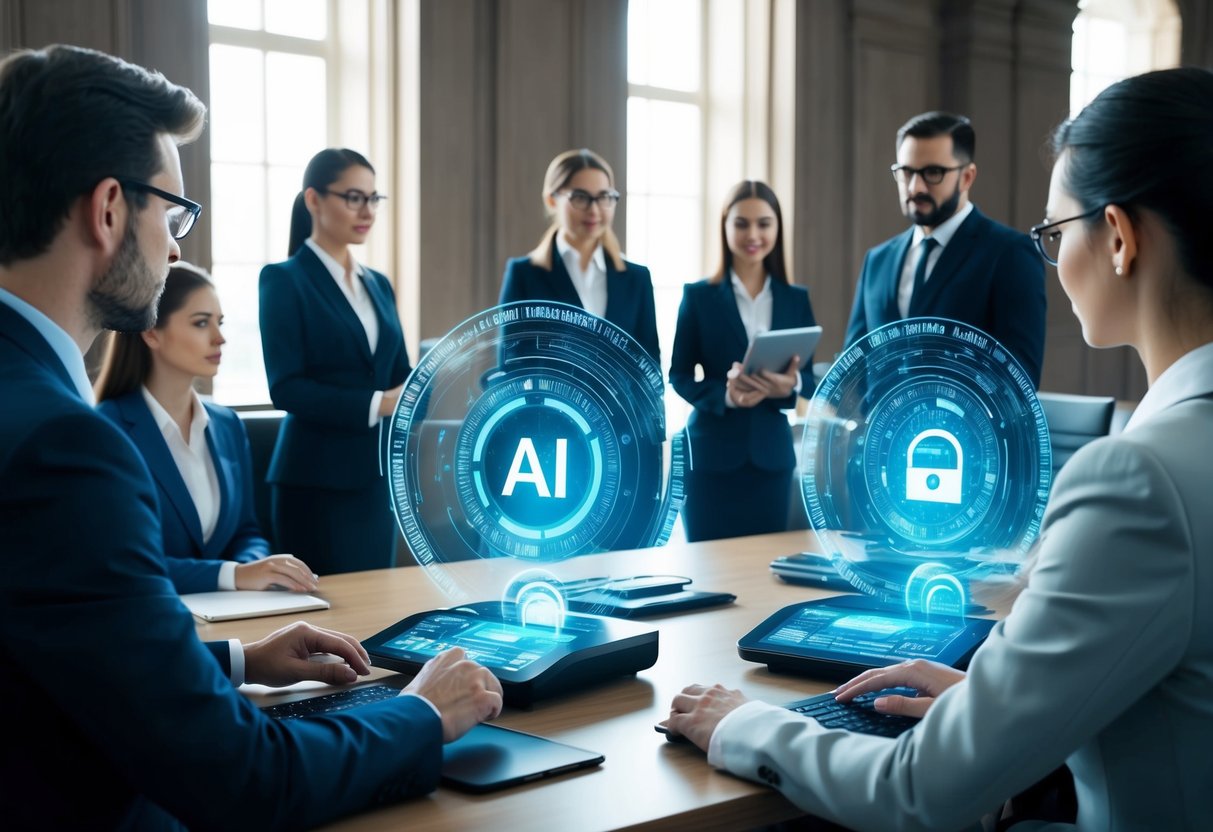
Enhancing Access to Justice through AI
Artificial intelligence offers transformative possibilities for improving access to legal services. By integrating AI into public legal services and catering to underserved populations, the legal sector can become more inclusive and efficient.
AI for Public Legal Services
AI-powered tools are increasingly being used by public legal services to streamline operations and improve service delivery. They assist with document analysis and automate routine tasks, allowing legal professionals to focus on complex issues. AI-driven chatbots and virtual assistants can provide initial consultations and legal information, making basic legal advice more accessible to the general public.
These technologies also help in simplifying legal language, breaking down barriers for those unfamiliar with the law. AI can reduce wait times significantly by managing appointment scheduling and case tracking efficiently. This ensures that public legal services are more responsive to the needs of individuals seeking justice.
AI Solutions for Underserved Populations
Underserved populations, including low-income individuals and rural communities, often face significant barriers in accessing legal assistance. AI offers scalable solutions to bridge this gap. By providing remote legal support through online platforms, AI helps reach individuals in areas with limited legal resources.
Natural language processing applications can translate legal documents and provide language-specific support, improving service availability for non-native speakers. Machine learning algorithms can identify patterns in data to highlight systemic issues affecting underserved communities, allowing for targeted legal interventions.
AI tools designed for pro bono work can also match lawyers with people who need legal help but cannot afford it. This targeted approach not only enhances accessibility but also emphasizes the importance of social justice within legal tech innovations.
Intellectual Property and AI
Artificial Intelligence is reshaping how intellectual property rights are defined and enforced, particularly within the realms of copyrights and patents. As AI continues to innovate, it generates new types of intellectual content, presenting unique challenges for existing legal frameworks.
Copyrights, Patents, and AI
AI’s role in creating content raises questions about authorship and ownership under copyright law. Traditional frameworks attribute rights to human creators, but AI operates without human intervention. This challenges current definitions and raises the need for new legislation that accommodates AI’s capabilities in content creation. Courts and legislators worldwide are exploring these questions to adapt intellectual property protections to modern technological innovations.
In the realm of patents, AI proves to be equally transformative. AI is capable of inventing novel solutions and optimizing existing systems, which complicates the identification of true inventors. Patent offices must consider whether AI can be recognized as an inventor or if human oversight is necessary. Defining guidelines on patent protection for AI-generated innovations remains a developing area of legal reform.
Protecting AI Generated Intellectual Property
As AI generates unique content ranging from music to algorithms, the protection of such intellectual property becomes crucial. These creations require new strategies to ensure they are safeguarded under existing laws, which are primarily tailored to human creators. Some jurisdictions are experimenting with extending copyrights and patents specifically for AI-generated works, while others debate the ethical and economic implications.
Organizations developing AI technologies explore partnerships with legal experts to craft appropriate frameworks for protection. These efforts aim to balance innovation incentives with fair competition principles. Navigating this complex legal landscape involves addressing who owns and benefits from AI-generated intellectual property. Essential to this discussion is how to distribute rights and rewards among stakeholders in the AI ecosystem.